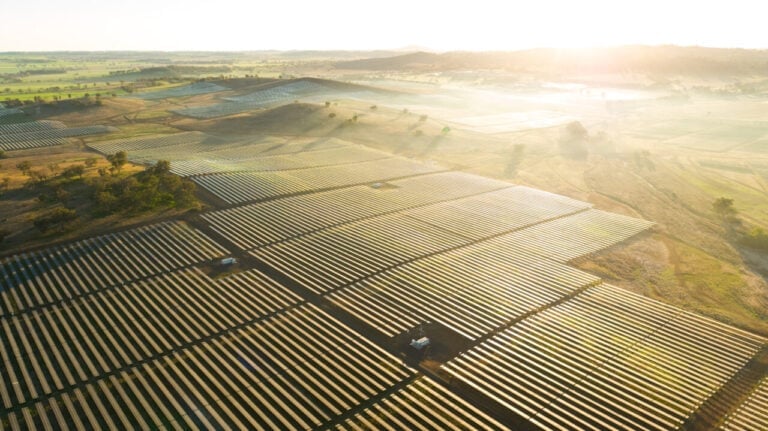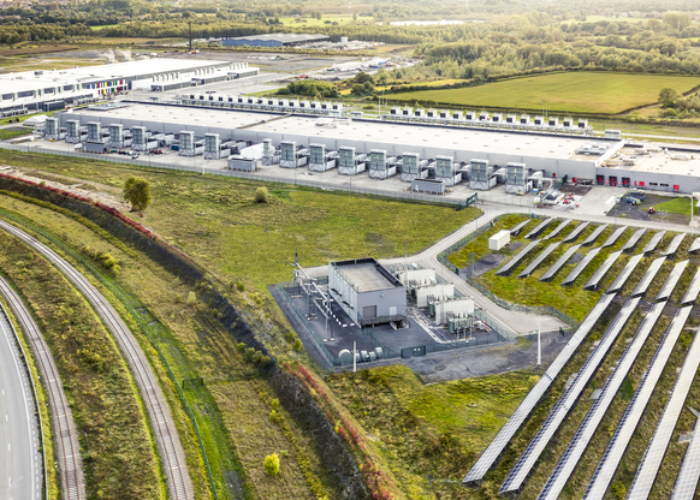
Australia’s Productivity Commission (PC) has suggested that the country phase out green subsidies for clean energy and replace them with market-based incentives starting in 2030.
Detailed within the Investing in cheaper, cleaner energy and the net zero transformation, although green subsidies have succeeded in spearheading the energy transition in Australia, market-based incentives must be introduced to help guide future investment in renewables.
Try Premium for just $1
- Full premium access for the first month at only $1
- Converts to an annual rate after 30 days unless cancelled
- Cancel anytime during the trial period
Premium Benefits
- Expert industry analysis and interviews
- Digital access to PV Tech Power journal
- Exclusive event discounts
Or get the full Premium subscription right away
Or continue reading this article for free
According to the report, Australia should enhance incentives in the electricity, heavy industry, and transport sectors to facilitate an efficient transition to net zero emissions. Together, these sectors represent 79% of Australia’s total gross emissions.
The Productivity Commission is an Australian government research and advisory body focused on economic, social, and environmental issues.
Specifically, the report suggests implementing market-based incentives in the electricity sector to replace the Renewable Energy Target (RET) and the hugely successful Capacity Investment Scheme (CIS), with the PC stating that neither will support new investments in renewables after 2030.
The CIS aims to promote new investments in reliable clean energy generation, enhance system reliability, and mitigate the risk of price fluctuations in Australia’s evolving energy market. Its successes thus far recently saw the federal government upsize its 2030 target from 32GW to 40GW.
Successful projects in the CIS are offered long-term Commonwealth underwriting agreements with an agreed-upon revenue “floor” and “ceiling.”
Commissioner Barry Sterland said reaching net zero at the lowest possible cost is central to the PC’s productivity challenge.
“With the right policy settings, we can limit the costs of decarbonising and speed up our approvals to unlock the opportunities of lower-cost, more abundant clean energy. We can also boost our resilience to the effects of climate change and minimise their human and economic costs,” Sterland said.
Policy frameworks driving renewable energy expansion
Australia’s renewable energy sector has benefited from various supportive policies, and the report underscores the importance of maintaining and expanding these frameworks.
The Commission highlights the need for robust policy mechanisms to incentivise investment in clean technologies, particularly in regions with high renewable energy potential.
Renewable energy zones (REZs) have been identified as a critical tool for facilitating large-scale solar PV development, providing the infrastructure needed to connect new generation capacity to the grid.
The expansion of REZ across the National Electricity Market (NEM) is expected to reduce curtailment risks and improve energy distribution efficiency, making it a key enabler for solar PV growth. Developers and investors are advised to closely monitor the rollout of these zones, as they will dictate the geographic focus of future installations.
Additionally, the report calls for streamlined regulatory processes to accelerate project approvals and reduce barriers to entry for new market participants. Planning delays were referenced as one of the biggest obstacles to clean energy investment in the NEM in a report released by advocacy and engagement platform Clean Energy Investor Group (CEIG) last month.
To address delays in energy infrastructure development, the report proposes the creation of an independent Clean Energy Coordinator-General. This role would oversee priority renewable energy projects, ensuring they are assessed and approved more efficiently.
The Coordinator-General would be supported by a specialist “strike team” tasked with breaking through regulatory and logistical roadblocks. This initiative could significantly reduce project timelines, benefiting developers and investors in the renewable energy sector.
Market trends and investment opportunities
Australia’s solar PV market is poised for continued growth, with the report projecting a steady increase in installed capacity through 2030.
This expansion is driven by strong demand from residential, commercial, and utility-scale segments and supportive policies such as feed-in tariffs and renewable energy certificates.
However, the report cautions that grid constraints and regulatory bottlenecks could slow progress if not addressed promptly, echoing the CEIG’s thoughts.
The report highlights the importance of aligning capital allocation with emerging market trends for investors. The growing integration of solar PV with energy storage systems presents a lucrative opportunity, particularly as hybrid renewables-plus-storage solutions become the norm for new installations.
Additionally, the report points to the rising demand for distributed energy resources (DERs), including rooftop solar and community-scale storage, as a key growth area for the sector. The Australian Energy Market Commissioner (AEMC) has recently explored the role virtual power plants (VPPs) and DERs could play in the NEM, potentially enabling them to compete with large-scale generators.
A recurring theme in the report is the emphasis on technology-neutral policies. By avoiding favouritism toward specific technologies or regions, the Commission believes this will create a level playing field that encourages the adoption of the most efficient and cost-effective solutions.
Non-profit organisation Climate Council has welcomed the PC’s report on Australia’s net zero transition, emphasising the critical role of renewable energy in driving productivity growth and economic resilience.
“The report highlights that accelerating the roll out of renewable power, through faster approvals, will support productivity growth – lowering developers’ costs, attracting investment and making energy cheaper. To do this, Australia’s national environmental laws must be reformed,” Climate Council CEO, Amanda McKenzie, said.






